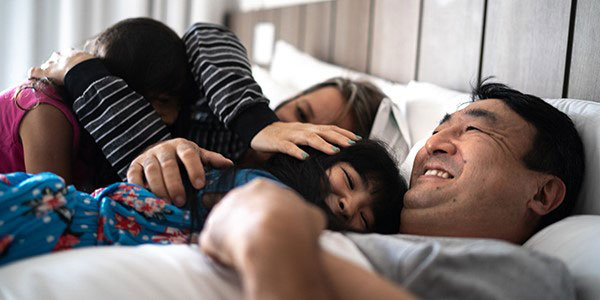
Better sleep, better you
Try these tips for getting a good night’s sleep:
If you have trouble falling asleep or staying asleep, you’re not tossing and turning alone. One in three adults in the U.S. don’t get enough sleep. Restless nights and tired days can make it harder to live your life to the fullest. Lack of sleep over time is linked to:
- Obesity
- Stroke
- Type 2 diabetes
- Mental health issues
- Heart disease
- Reduced immunity
Healthy habits that help you sleep better
To help you get your recommended seven to nine hours of sleep a night:
Make your bedroom sleep-friendly. Block out light and noise and turn down the thermostat. Cooler temperatures signal your body that it’s time to sleep.
Cut down on screen time. Put your phone and tablet away at night, or limit using them at bedtime. Device backlights can disrupt your body’s release of melatonin, which is its natural way of making you feel sleepy.
Stick to a schedule. Going to sleep and waking up at about the same time every day is one of the best ways to cultivate good sleep. It helps keep your body’s sleep cycle on track.
Get rested and recharged with a better sleep routine.
You deserve a good night’s sleep!
How much sleep do you actually need?
How can you combat sleep anxiety and get a good night’s rest?
How much does (even a small amount of) alcohol affect your sleep?
Find out by visiting our BeWell Albemarle site!
Up Next in our 4-Week Fitness & Nutrition Information Campaign:
Week 4 – Tech Tools for Triumph
